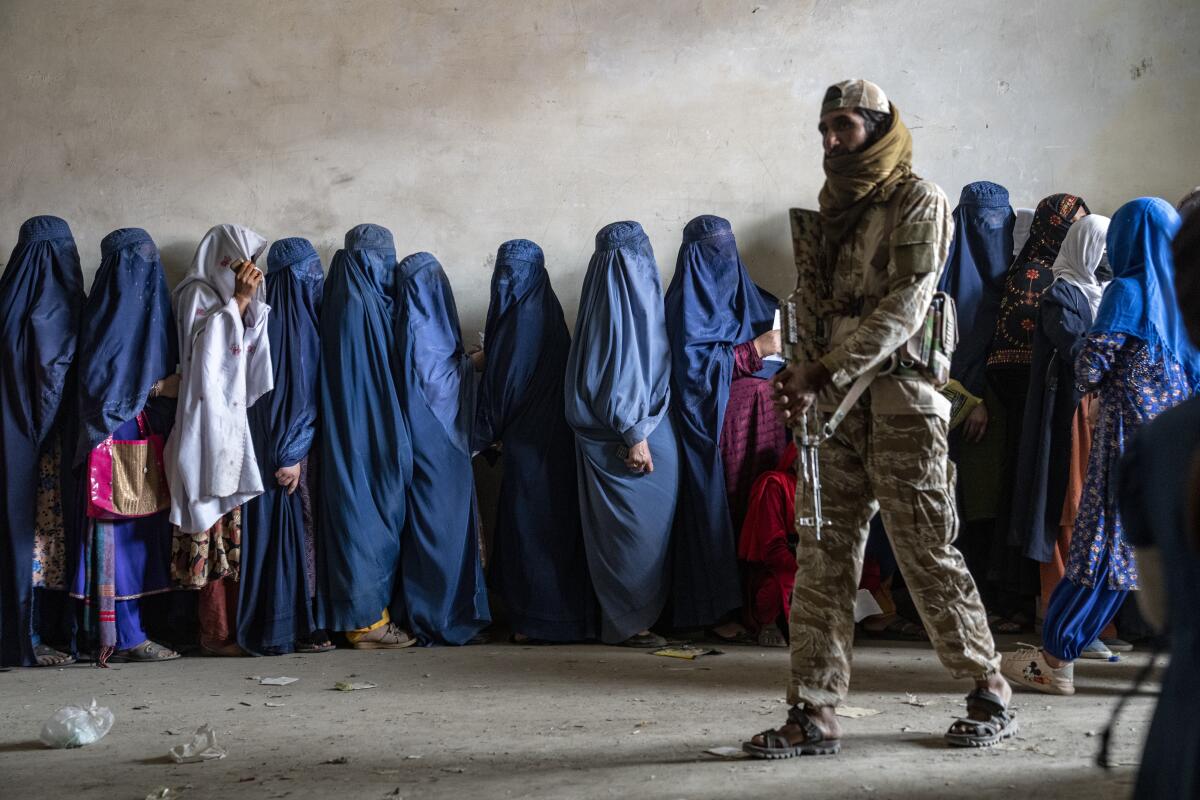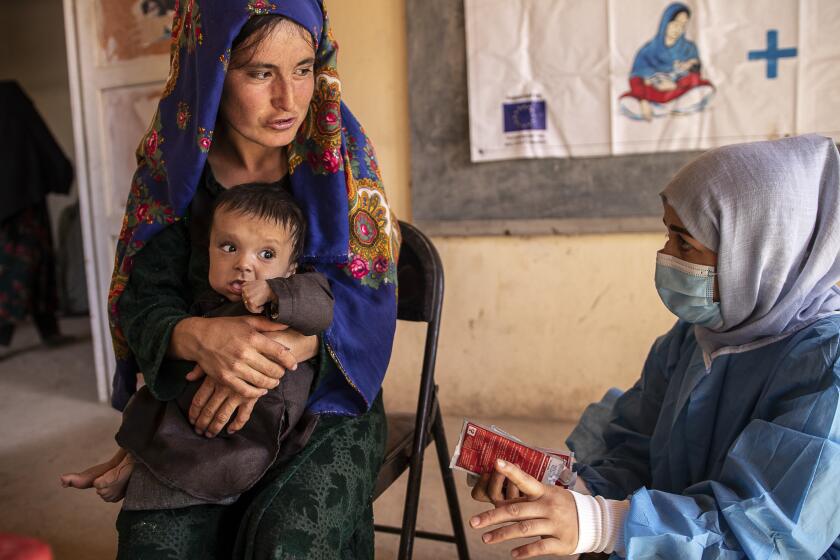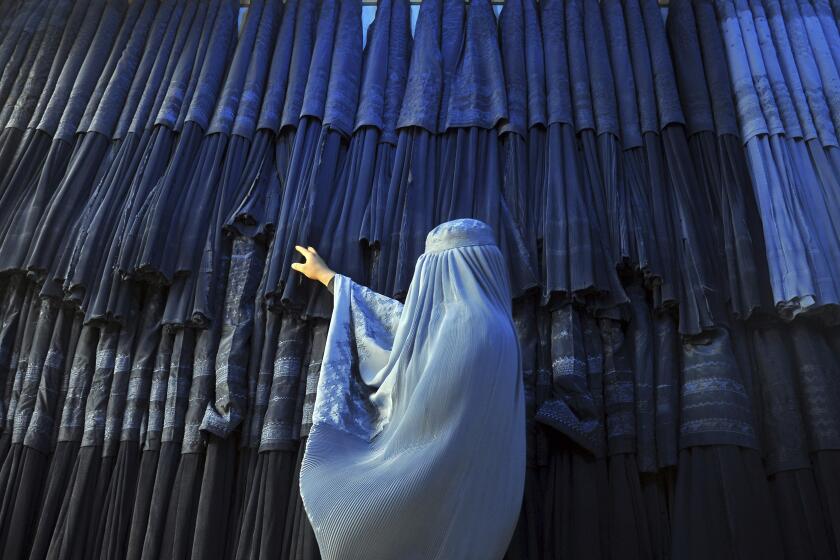Taliban’s restrictions on women are ‘crime against humanity,’ rights groups say

- Share via
ISLAMABAD, Pakistan — Two top rights groups Friday slammed the severe restrictions imposed on women and girls by the Taliban in Afghanistan as gender-based persecution, which is a crime against humanity.
In a new report, Amnesty International and the International Commission for Jurists, or ICJ, underscored how the Taliban’s crackdown on women’s rights, coupled with “imprisonment, enforced disappearance, torture and other ill-treatment,” could constitute gender persecution under the International Criminal Court.
The report by Amnesty and ICJ, titled “The Taliban’s war on women: The crime against humanity of gender persecution in Afghanistan,” cited the ICC statute, which lists gender-based persecution as a crime against humanity.
The Taliban seized power in Afghanistan in August 2021 as U.S. and NATO troops were in the final weeks of their withdrawal from the country after two decades of war.
Despite initial promises of a more moderate rule, the Taliban started to enforce restrictions on women and girls soon after their takeover, barring them from public spaces and most jobs, and banning education for girls beyond sixth grade. The measures harked back to the previous Taliban rule of Afghanistan in the late 1990s, when the group also imposed its strict interpretation of Islamic law, or Sharia.
The harsh edicts prompted an international outcry against the already ostracized Taliban, whose administration has not been officially recognized by the United Nations and the international community.
Though it pledged to respect the rights of Afghan women and girls, the Taliban is turning back the clock on their education and presence in public life.
In the report, Santiago A. Canton, the ICJ secretary general, said the Taliban’s actions are of such “magnitude, gravity and of such a systematic nature” that they qualify “as a crime against humanity of gender persecution.”
Both organizations called on the International Criminal Court to include this crime in its ongoing investigation into what is happening in Afghanistan and take legal action. They also called on countries “to exercise universal jurisdiction” and hold the Taliban accountable under international law.
The report also accused the Taliban of targeting women and girls who have taken part in peaceful protests by detaining, “disappearing” them and subjecting them to torture in custody. The Taliban has also forced them to sign “confessions” or “agreements” not to protest again, the report said.
What is happening in Afghanistan is “a war against women,” which amounts to “international crimes” that are “organized, widespread, systematic,” said Agnes Callamard, Amnesty’s secretary general.
Aid workers say the Taliban’s ban on women working for nongovernmental organizations is already hurting humanitarian efforts to keep Afghans alive.
Without elaborating, she called for the international community to dismantle “this system of gender oppression and persecution.”
Amnesty also documented cases of women and girls being forcibly married to members of the Taliban, as well as attempts to force them into such marriages. The report said women who refused were “subjected to abduction, intimidation, threats and torture.”
The report cited the case of a 15-year-old girl who was forced to marry a Taliban figure despite her family’s objections in the northeastern province of Takhar in August 2021, and that of a 33-year-old female journalist and social activist who was forcibly married to a Taliban commander the following month.
“We simply cannot afford to fail the women and girls of Afghanistan,” said Canton of the ICJ.
The Afghan woman appeared in a video on social media accusing a senior Taliban official of forcing her to marry him and raping her repeatedly.
The report said the Taliban has also perpetrated human rights violations against Afghan men.
Several monitoring groups have documented reports of “extrajudicial killings, arbitrary arrests and detention, enforced disappearances, and torture” of those associated with the former Western-backed Afghan government that crumbled in the face of the Taliban takeover of the country.
The Taliban has also targeted journalists, the LGBTQ+ community, rights activists and ethnic minorities, the report said.
Amnesty and the ICJ also shared a summary of the report’s findings with the Taliban-appointed foreign ministry in Kabul, requesting a response. None was immediately provided, the groups said.
More to Read
Sign up for Essential California
The most important California stories and recommendations in your inbox every morning.
You may occasionally receive promotional content from the Los Angeles Times.













